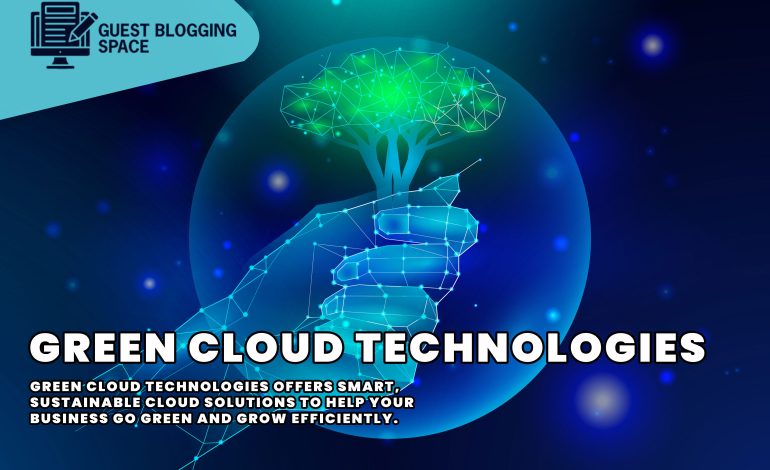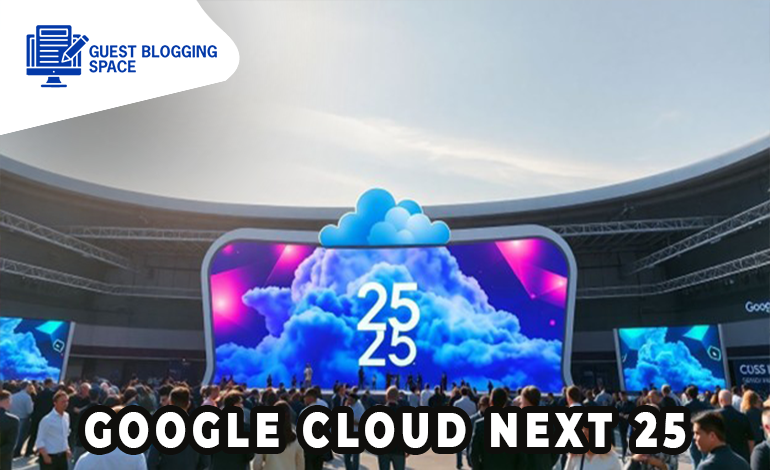Green Cloud Technologies: The Future of Sustainable Digital Transformation

As our world becomes more digital by the day, so does the need for eco-conscious technology. Behind every app, platform, and cloud service lies a data center working around the clock — consuming energy and emitting carbon. The solution? Green Cloud Technologies.
This cutting-edge strategy brings together green environmentalism and state-of-the-art computing, enabling companies to innovate in a way that won’t destroy the planet. It’s not simply about data storage anymore — it’s about storing it responsibly.
Getting Your Head Around Green Cloud Technologies
What Does “Going Green” in the Cloud Mean?
Green Cloud Technologies is are cloud infrastructures and service that aim to reduce its environmental footprint. They use energy-efficient practices, minimize waste, and tend to be based on clean energy sources such as wind, sun, or water power.
In contrast to the conventional cloud configurations that use enormous amounts of fossil-fuel energy, green cloud models aim to cut carbon emissions, maximize resource efficiency, and make IT more sustainable.
Why Traditional Cloud Computing Needs a Green Upgrade
The majority of cloud infrastructure continues to use traditional sources of energy and hardware that is not efficient. To be precise, global data centers account for roughly 1%–2% of global electricity consumption. Ongoing power requirements result in increased emissions and increasingly significant environmental impacts.
Without sustainable solutions to scale digital services, we stand to turn progress into pollution.
Advantages of Adopting Green Cloud Technologies
For the Environment
Fewer greenhouse gases
Lower energy demand
Cleaner air and less e-waste
For Businesses
Decreased operational costs
Compliance with sustainability regulations
Enhanced brand reputation among eco-conscious customers
How Green Cloud Technologies Work
Efficient Cooling and Smart Hardware
Next-gen data centers employ sophisticated cooling technology, like liquid immersion or passive airflow, to cool without wasting power. Efficient processors and solid-state drives minimize the total energy load.
⚡ Powered by Renewables
Green cloud providers spend a lot of money on solar panels, wind turbines, and off-site renewable energy credits. This transition eliminates coal or gas dependence.
AI for Smarter Resource Management
Machine learning algorithms currently oversee server utilization, minimize idle time, and see to it that resources are used only when required. This translates to less wastage of energy and more streamlined operations.
How to Make the Move Towards Green Cloud Technologies
1. Engage with Eco-Friendly Suppliers
Select suppliers who publicly state their sustainability targets and reveal the sources of their energy. Search for third-party green certifications or emission reduction strategies.
2. Re-Architect Your Infrastructure
Employ cloud-native designs such as serverless computing, auto-scaling, and containerization to prevent overprovisioning and standby consumption.
3. Monitor and Optimize Continuously
Leverage performance tools to monitor energy consumption. Small changes, such as turning off idle instances or cold data archiving, can yield big energy savings.
Future Outlook: Where Green Cloud Is Headed
Edge Computing
Local processing of data minimizes long-distance data transfers, thereby dramatically reducing network energy consumption.
Green Innovation
Biodegradable server parts, energy-harvesting chips, and even carbon-neutral cloud labels will start to become more prevalent.
Regulations Get Tighter
With stricter climate policies on the horizon, businesses will be mandated to report, reduce, and track their digital emissions openly.
Rethinking the Cloud, Responsibly
Green Cloud Technologies presents a clear direction of travel for organizations that are concerned about innovation and the planet. By making sustainable infrastructure and green providers a choice, companies can make a genuine difference, not only for compliance but for generations to come.
The digital world does not have to be at the planet’s expense. By making the right decisions today, we can create a cleaner, smarter, and greener tomorrow.
Key Insights
Green Cloud Technologies facilitatesa cleaner, smarter digital infrastructure.
Renewable energy, AI, and contemporary cooling technologies propel green cloud adoption.
Businesses gain through cost savings, regulatory compliance, and customer loyalty.
The future of cloud computing is green, intelligent, and regulatory compliant.
Frequently Asked Questions (FAQs)
1. In what ways do Green Cloud Technologies lower environmental footprints?
They employ renewable power, energy-efficient equipment, and intelligent software to reduce electricity usage and carbon footprints.
2. Are Green Cloud solutions more costly?
Not necessarily. Although there might be initial expenses, long-term energy efficiencies and regulatory incentives render them cost-effective.
3. Which cloud vendors are recognized as being green?
Google Cloud, Microsoft Azure, and AWS have made significant investments in clean energy and green data center practices.
4. Can Green Cloud Technologies be adopted by small businesses?
Absolutely! Most cloud platforms have accommodating green options, which are adaptable and affordable to startups and SMEs.
5. What proves a cloud provider is eco-friendly?
Seek for certifications such as ISO 14001, Energy Star, LEED, or Climate Neutral Data Centre Pact membership.









